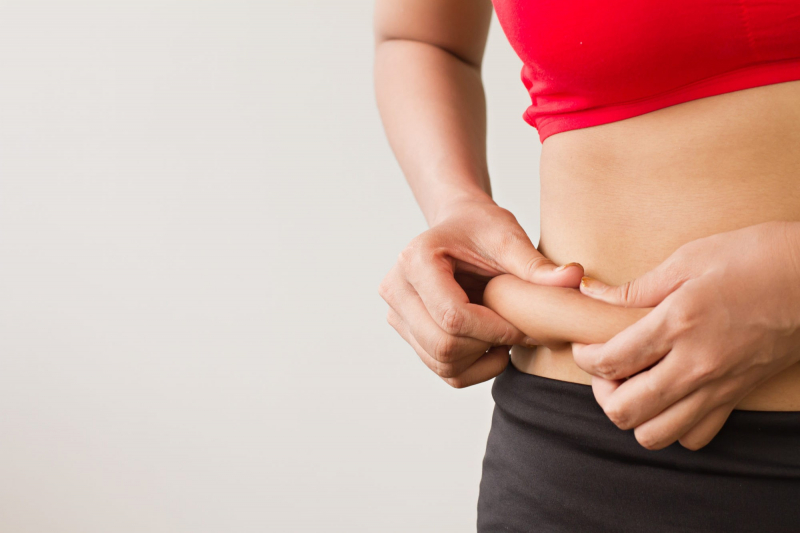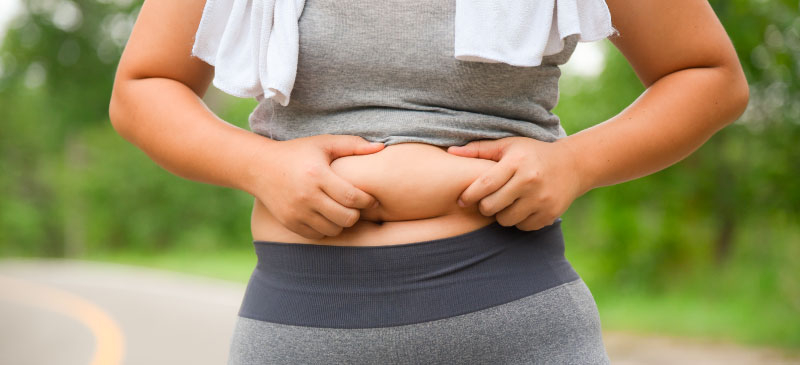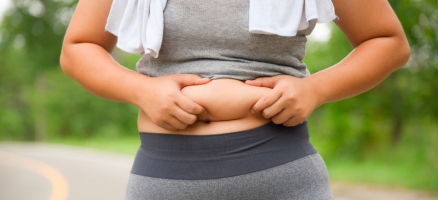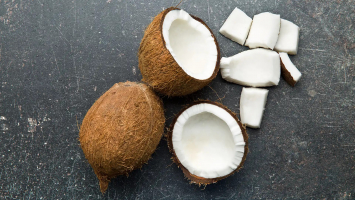Top 10 Reasons That Make You Gain Belly Fat
Many people have the common goal of reducing their abdominal or belly fat. While keeping a healthy body weight and body fat percentage is crucial for optimum ... read more...health, the type of belly fat you store can influence your health differently. Read on to find out the reasons that make you gain belly fast below!
-
Many people consume more added sugar daily than they realize. In the diet, baked goods, pastries, muffins, flavored yogurts, breakfast cereals, granola and protein bars, prepackaged foods, sugar-sweetened drinks, and other processed foods are frequently rich in added sugar.
Scientists discovered that over the course of six years, people who drank at least one sugar-sweetened beverage per day had a 27% larger rise in belly fat volume than people who didn't. Despite weight growth, this association still held true. Beverages with added sugar included soda, carbonated sweetened beverages, fruit punches, lemonade, and other fruit drinks. Even while all foods and beverages can be enjoyed in moderation, it's preferable to save foods and drinks with added sugar for special occasions. Choose water, unsweetened coffee or tea, and whole, less processed foods as a substitute most of the time.
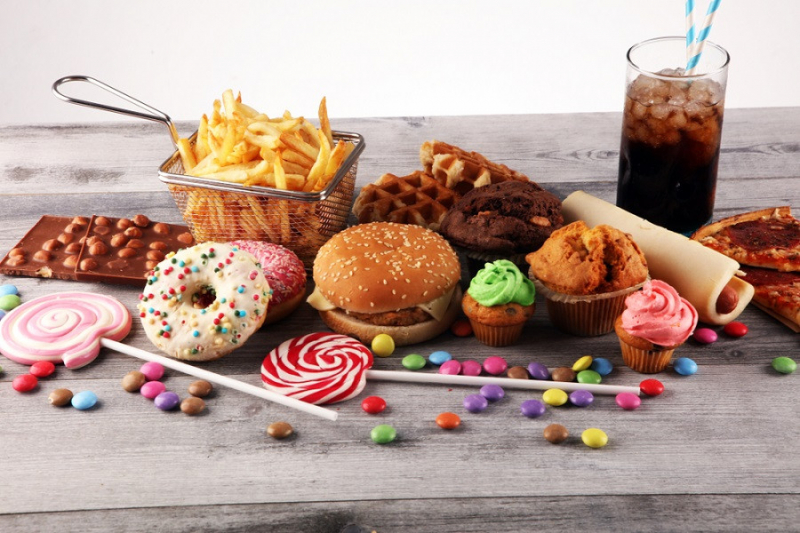
Sugary foods and beverages 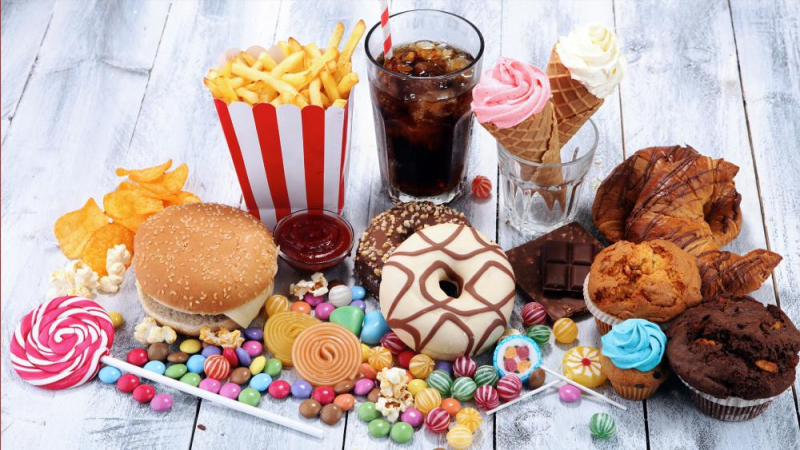
Sugary foods and beverages -
Both beneficial and detrimental effects of alcohol are possible. It is linked to a lower risk of heart disease when consumed in moderation, particularly as red wine. High alcohol use, however, has been linked to numerous health issues, including excess weight gain, cancer, liver disease, and inflammation.
Excessive alcohol use is linked to a higher body mass index (BMI) and a greater accumulation of visceral fat. Alcohol is believed to be responsible for a number of factors that lead to weight increase, including belly fat. Alcohol consumption and the storage of belly fat are significantly correlated with dose, according to a recent review of 127 research. Additional research has demonstrated that excessive alcohol use, particularly in men, is associated with weight increase and abdominal obesity (2–3 drinks per day or more). If you decide to drink, try to limit yourself to no more than two drinks per day.

Alcohol 
Alcohol -
The least healthy fats are trans fats. Although trans fats are found in small amounts in nature, they are mostly produced for the food system by adding hydrogen to unsaturated fats to increase their stability and enable them to become solid at room temperature.
Trans fats are frequently used in packaged foods and baked goods as a less expensive but still functional substitute for butter, lard, and other more expensive ingredients. Because trans fats have harmful impacts on health, many nations, including the United States and Canada, have banned their usage in food goods. Although trans fat has been linked to poor health in recent years and is believed to contribute to visceral fat. It's important to read the nutrition label if you're unsure, even though many nations have taken steps to restrict or completely ban the use of artificial trans fats in the food supply.
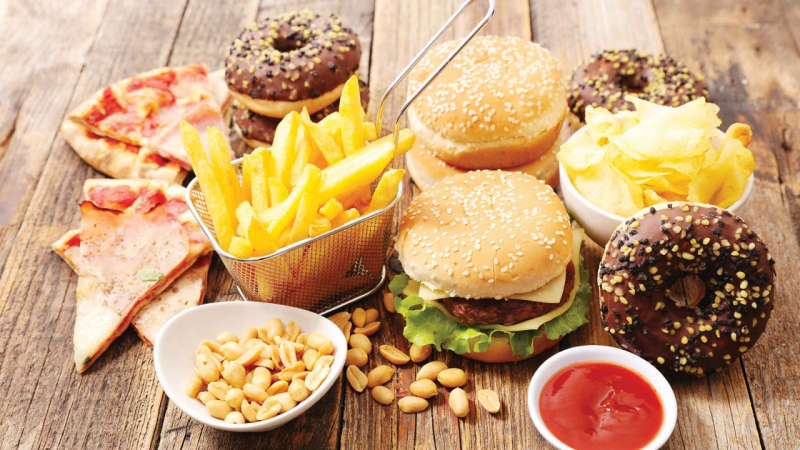
Trans fats 
Trans fats -
One of the main risk factors for poor health outcomes is a sedentary lifestyle. It involves spending the entire day sitting down (e.g., watching TV, sitting at a work desk, long commutes, playing video games, etc.). Prolonged sitting can increase the risk of adverse health outcomes and weight gain even if a person is physically active, which is defined as engaging in physical labor or exercise.
Physical inactivity and a sedentary lifestyle have been linked to a direct increase in both visceral and subcutaneous belly fat. Fortunately, frequent physical exercise and avoiding prolonged periods of sitting will help you maintain your weight while reducing your risk of developing more belly fat. According to one study, people who exercised for a year after losing weight were able to avoid gaining visceral fat, but those who did not exercise saw a 25–38% increase in belly fat.

Sedentary lifestyle and physical inactivity 
Sedentary lifestyle and physical inactivity -
Getting enough protein in your diet can help you manage your weight. Since protein takes longer to digest than other macronutrients, high protein diets may help you shed pounds and prevent weight gain by causing an increase in the feeling of fullness.
Numerous studies indicate that those who eat the highest amount of protein are the least likely to have excess belly fat. One recent 2021 study in older men with restricted mobility found that protein intake above the RDA (>0.8g/kg/d) was linked to higher reductions in visceral belly fat than protein intake that just met or was below the RDA. Try to incorporate a high-quality protein source at every meal and snack to maximize your protein consumption. Examples of such foods are lean meat, poultry, tofu, eggs, beans, and lentils.
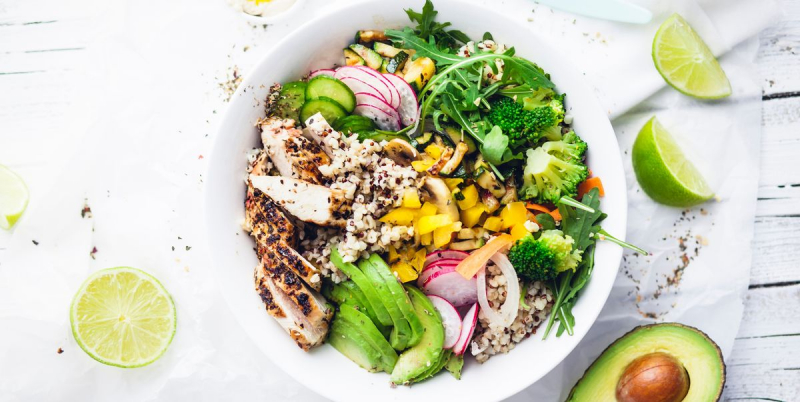
Low protein diet 
Low protein diet -
It happens frequently during menopause to gain abdominal fat. The hormone estrogen signals the body to start storing fat on the hips and thighs during puberty in preparation for a potential pregnancy. Although it can be challenging to lose in some cases, this subcutaneous fat is not unhealthy from a health perspective.
One year following a woman's last menstrual period, menopause officially begins. Estrogen levels significantly decrease during this time. Even though each woman is affected by menopause in a different way, in general, it tends to cause fat to be stored in the abdomen rather than on the hips and thighs. While menopause is a totally natural part of aging, therapies like estrogen therapy may reduce your chance of storing belly fat and related health problems. Speak to a healthcare professional or a registered dietitian nutritionist if you have any questions.
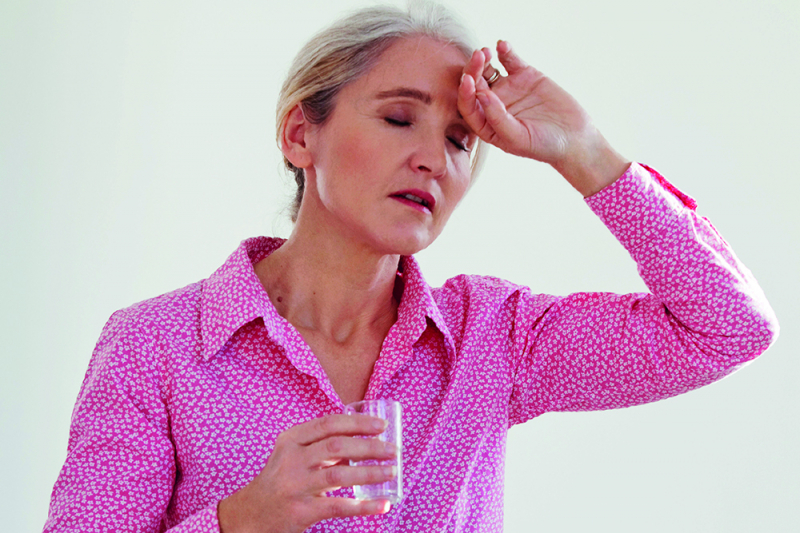
Menopause 
Menopause -
Your gut, particularly your colon, is home to hundreds of different types of bacteria. While some of these bacteria are beneficial to health, others might be problematic.
Some studies indicate that an unhealthy balance of gut bacteria may encourage weight gain, particularly abdominal fat. Particularly, increased weight and visceral fat are linked to having a larger ratio of Firmicutes bacteria to Bacteroidetes. It is believed that changes in bacterial variety can affect how nutrients and calories are metabolized, increase inflammation, and modify how hormones are regulated, all of which can result in weight gain. A probiotic containing five strains of "good" bacteria was shown to significantly lower body fat percentage and visceral fat in a randomized, double-blind, 12-week study of obese postmenopausal women.

The wrong gut bacteria 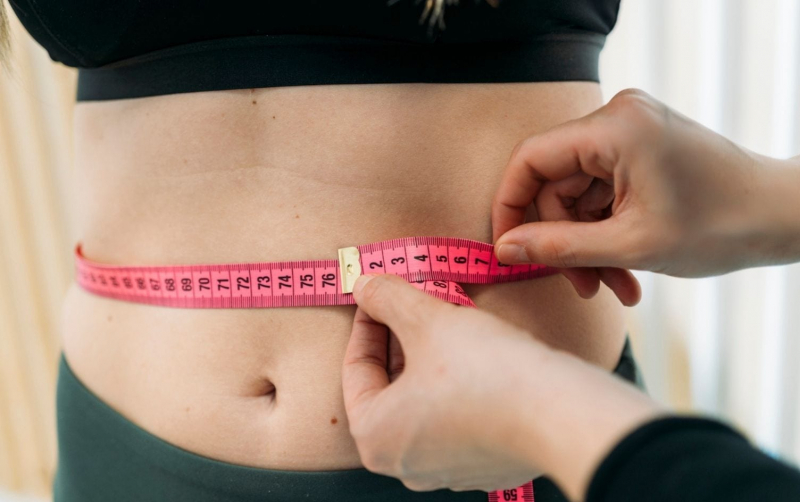
The wrong gut bacteria -
Chronic stress can promote the buildup of visceral fat, which makes it difficult to reduce weight because it raises cortisol levels too high. A hormone called cortisol is necessary for survival. It's produced by the adrenal glands and is referred to as a "stress hormone" because it helps your body respond to a physical or psychological threat or stressor.
Additionally, elevated cortisol levels in relationship to food may cause some people to select high-calorie foods as a source of comfort, which can result in undesired weight gain. This might result in an excessive intake of foods high in fat and sugar, which are quick and dense sources of energy. Chronic stress can also have an impact on other lifestyle choices that could result in weight gain, such as poor sleep habits, sedentary habits, and physical inactivity.

Stress and cortisol 
Stress and cortisol -
For optimal health and weight management, fiber is crucial. Certain fibers can balance hunger hormones, promote fullness, and help you control hunger.
Soluble fiber consumption was linked to lower belly fat in one observational research with 1,114 men and women. There was a 3.7% decrease in the buildup of abdominal fat for every 10-gram increase in soluble fiber. The opposite effect on hunger and weight gain, including increases in belly fat, appears to be caused by diets high in refined carbs and poor in fiber. High-fiber whole grains were linked to decreased abdominal fat, while refined grains were linked to increased abdominal fat, according to a large study involving 2,854 adults. Fiber-rich foods include beans, lentils, whole grains, oats, vegetables, fruit, plain popcorn, nuts, and seeds.

Low fiber diet 
Low fiber diet -
If you're like many fit women, you have done exercise so hard, but your belly fat seems to stick around no matter how well you eat or how hard you sweat. In this case, genetics is a big factor.
"You can inherit abdominal-fat-risk gene variations from your mother or your father or from both", says epidemiology professor Lu Qi, M.D., Ph.D., the director of the Tulane University Obesity Research Center. The chance of getting obese is significantly influenced by genes. The tendency to store fat in the abdomen as compared to other parts of the body also appears to be controlled in part by genetics. Interestingly, recent research has begun to identify specific genes linked to obesity. Leptin, a hormone involved in hunger control and weight management, is one hormone that release and action may be influenced by specific genes. Although promising, much more study in this area is required.
